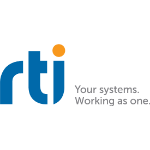Evening Plans:
Inspired by the success of the new graduate/undergraduate credited seminars at UC Davis (https://expolab.org/) centering on stress reduction, Mohammad Sadoghi (UC Davis) along with Dr. Lynn Wilcox (Professor Emeritus at CSU, Sacramento, Counseling/Psychology Department) and Dr. Nasim Bahadorani (MBS, DrPH, CHES) will be offering an hour introductory experiential workshop in stress management. Overcoming stress is crucial in paving the way to promote a healthier lifestyle filled with joy & creativity. This experiential seminar presents a comprehensive stress management technique that revolves around unique heart-centered meditation practice, namely, Tamarkoz®. Tamarkoz® practices employ the art of self-knowledge through concentration and meditation. Learning meditation is like learning how to swim. You cannot do it by reading a book. You have to get in the water and practice. True learning requires systematic training. This workshop will provide a "taste", it teaches how to attain the relaxation necessary for reaching the real state of concentration and meditation.
The beneficial effects of meditation are well documented in a massive amount of research literature. Participants report many positive results, with particular emphasis on stress reduction. People who meditate properly are calmer, less tense, less reactive to stress, healthier, feel better, have greater self-esteem, and above all are more creative and joyful than those who do not. Meditators also report a sense of increased well-being and enjoyment of life. Research has clearly demonstrated that meditation is helpful in several stress-related conditions such as high blood pressure, headaches, back problems, cardiac rehabilitation and pain reduction. Recent research indicates it is often more effective than psychotherapy in the treatment of some problems. The exercises included in the workshop can be of immediate practical value, and participants usually enjoy doing them. Generally, the aim of the workshop (when offered as a quarter-long course) is to provide: (1) A foundation and working knowledge of basic theories of meditation; (2) The opportunity to participate as an ongoing member of a meditation group; (3) Working knowledge of meditative techniques; (4) An understanding of meditative principles; (5) The ability to practice deep breathing; (6) The ability to perform stretching and energy balancing exercises; (7) Working knowledge of stress reduction techniques; (8) Knowledge of the various types of meditative approaches and relevant therapeutic factors; (9) A safe environment, in which participants feel free to examine and change behavioral habits; and (10) The capacity to sit still and silent for 30 minutes.










